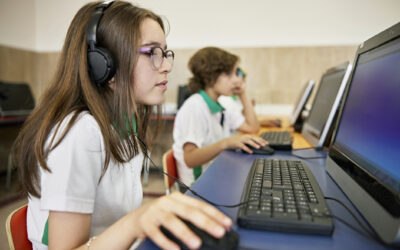What is Career Readiness?
Career readiness in education refers to curriculum and lessons that prepare students to enter the workforce. This includes ensuring students have transferable knowledge, skills and attributes that support future careers.
While some assume career readiness refers to specific hard skills related to a specific industry or trade, career readiness includes much more, including skills such as digital literacy, problem solving, critical thinking, and more.
Why is Career Readiness Important?
Career readiness has become an important responsibility of educators, administrators and curriculum developers. But why is career readiness in education so important?
1. Real-World Success
The purpose of career readiness in education is to provide students with integral skills and qualities that bolster professional preparedness and success. While the unique hard skills related to a particular job or industry are crucial to a student’s success in their field, the transferable skills that transcend industry, such as digital literacy, problem solving, critical thinking, teamwork and leadership, can have a great positive impact regardless of industry. Plus, they are critical tools for everyday life.
2. Economic Growth
A highly skilled and career-ready workforce is a key driver of economic growth. When individuals are skilled and well-prepared as they enter the workforce, they are more likely to secure meaningful employment, be more productive in their roles, and ultimately generate higher economic value for their communities and countries.
3. Higher Earnings
Career readiness means students are better equipped for skilled work and more challenging roles within their industries of choice. Because of this, career-ready individuals tend to earn higher salaries than those who are less prepared for the workforce. By providing students with career-ready skills and qualifications, education can positively impact students’ earning potential and financial stability.
4. Equity
Career readiness in education can help level the playing field and promote social mobility by providing all students, regardless of their background, with the skills and opportunities to pursue their desired careers and achieve their potential.
Career Readiness & Digital Literacy
Digital literacy plays a prominent role in conversations about career readiness, and it’s no wonder why. In today’s increasingly technology-driven world, digital literacy equips individuals with the skills and knowledge needed to effectively navigate and utilize digital tools and technologies in their careers. However, extending beyond the use of technology itself, digital literacy also supports critical skills such as computational thinking and algorithmic thinking, which are invaluable in future readiness regardless of industry or online/offline application.
Final Thoughts
The purpose of education is to equip our students as well as possible for future challenges and opportunities. By keeping a focus on career readiness, educators, administrators, standards and curriculum developers, parents and caretakers, government officials, and others invested in the students’ journeys can help guide our future generations to a more successful, profitable and engaged future.

Learning.com Team
Staff Writers
Founded in 1999, Learning.com provides educators with solutions to prepare their students with critical digital skills. Our web-based curriculum for grades K-12 engages students as they learn keyboarding, online safety, applied productivity tools, computational thinking, coding and more.
Further Reading
Understanding Proclamation 2024 and the TA-TEKS
Understanding Proclamation 2024 and the TA-TEKS In 2024, Texas introduced Proclamation 2024 to begin the process of adopting new instructional...
Guide to Teaching Algorithms in Computer Programming for K-12 Students
Algorithms are the heart of computer programming, providing the step-by-step instructions that computers follow to perform tasks and solve problems....
Planning Digital Literacy Assessment: A Simplified Approach
As educators know, assessments are critical to the learning process. They provide beneficial self-checks to students, informative results to...




